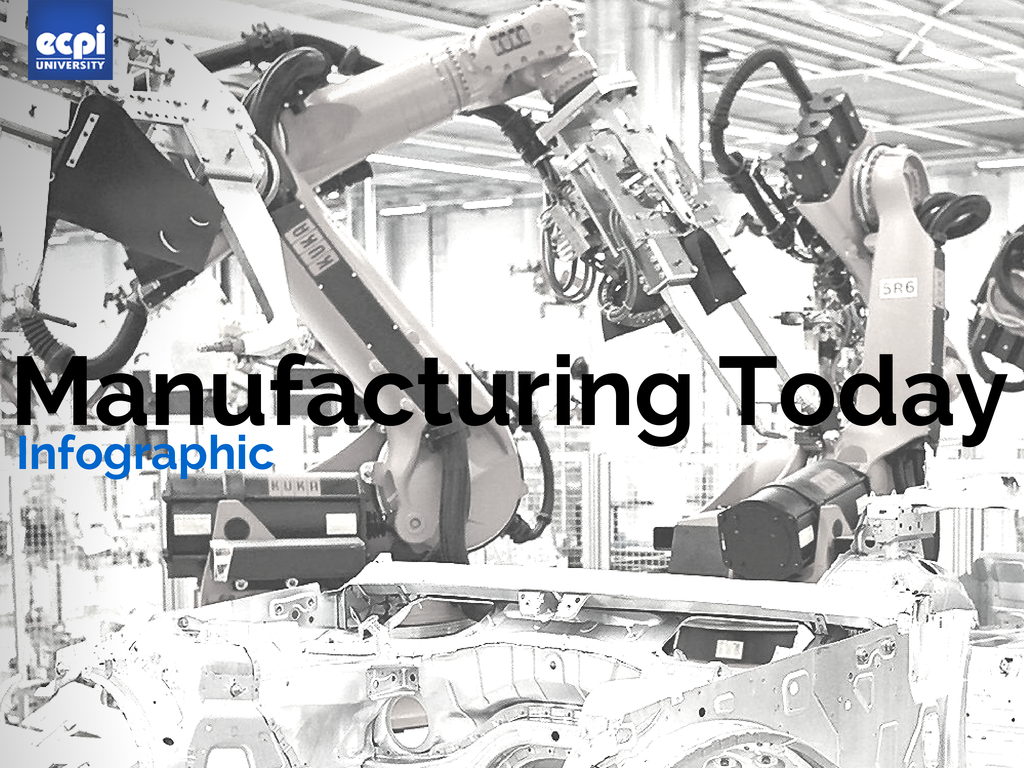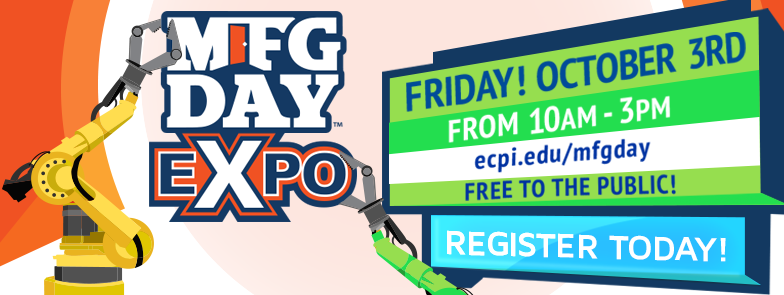 Ask most any student what careers they might be considering and it's unlikely they will list manufacturing. For the most part, other careers are promoted much more vigorously toward those who are well-versed in the science, technology, math and engineering.
Ask most any student what careers they might be considering and it's unlikely they will list manufacturing. For the most part, other careers are promoted much more vigorously toward those who are well-versed in the science, technology, math and engineering.
Manufacturing is the engine that drives over 17 million jobs in the United States alone and that number is growing.
However, there isn't a single field that completely encompasses these related subjects better than manufacturing, which is the sole industry that feeds all other product and service-oriented industries across the United States and the world.
Manufacturing Has Exposure in Almost Every Career Field...
Manufacturing is creating an escalating demand for people with STEM backgrounds. For a student well-versed in these STEM fields, there are many options; she can migrate from fields as diverse as welding and assembly, to computer programming and machining.
More specifically, manufacturing entrants can be considered for the following short list of careers:
- jobs in human resources, where their understanding of manufacturing helps tremendously with recommendations and hiring assessments
- project operations managers - where knowledge of the underlying principles of separate jobs are known to people trained in the various subfields of manufacturing
- product designers
- sales and marketing professionals
- fabricators and assemblers
- electricians and general engineers (of course)
- for the theoretician, research is a good area and researchers are in high demand for R&D
It can be difficult to conceive of just how important manufacturing is, and the scope of its influence on the US economy. For some perspective, manufacturing comprises almost two trillion dollars of the U.S. GDP; and according to the Brookings Institute, it contributes to the majority of U.S. exports - to the tune of 60%, in fact. The jobs provided by the industry point to just a portion of its overall importance to the American way of life, and the rest of the world as it depends on what the nation offers and needs.
The Nation Recognizes the Importance of Manufacturing
As outlined above, for a long time the actual case for the importance of manufacturing had to be made to the public at large. It's always been seen as a behind-the-scenes industry, with its offspring receiving the bulk of the consideration for technological innovation and progress.
With the establishment of Manufacturing Day - which falls on the first Friday of October every year - more people are appreciating the 12.5% contribution the industry makes to the U.S. economy by way of GDP per annum. It's almost like a huge trade show, where manufacturers powering every industry host convention-like events and have open houses for public inspection and perusal. Students and their parents, news media outlets, public officials, and members of the business sphere are welcome to check out the many facets of participating manufacturing companies. This initiative has been met with wide success so far, with the Manufacturing Day results from 2013 being:
- analytics showed up to 80 million unique visitors saw the Discovery Communication Science Channel's show "How It's Made" and used it to learn a bit more about manufacturing
- more than a dozen governors officially recognized Manufacturer's Day
- over 35,000 people attended the 834 events and open houses
- the most-visited news organizations provided coverage - from the Huffington Post to the Boston Globe and more
- a NASCAR Sprint Cup team gave some publicity to the event by posting the brand logo on a race car
The future looks promising as the next generation of scientists and engineers are being influenced by the recognition that manufacturing is finally getting; this will, of course, benefit the nation incalculably. Click here to register TODAY!



